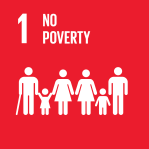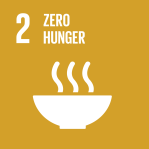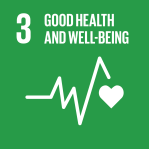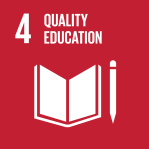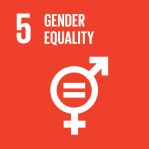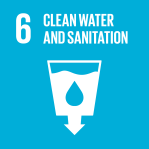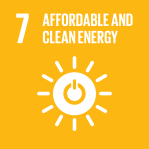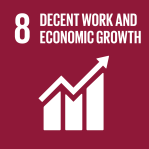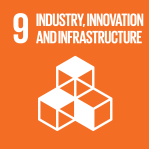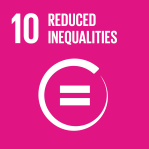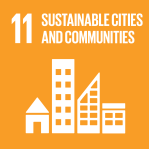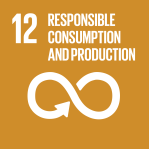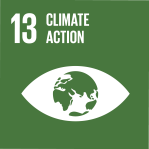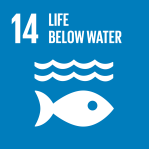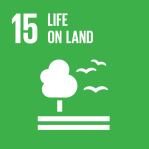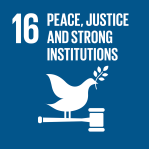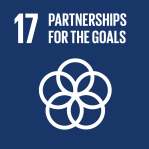A set of over 140 indicators monitoring over 70 national priorities was created to analyze changes over time and assess Poland's progress in areas that pose challenges for our country in terms of SDGs. Contrary to global targets and indicators concerning the whole world, the priorities for Poland and the corresponding indicators are tailored to our country.
National priorities, followed by monitoring indicators, were first defined in 2018 based on the experience and conclusions from the period of Poland’s preparation for its first presentation during the Voluntary National Review at the United Nations High-Level Political Forum. In 2023, the set of priorities and indicators have undergone major changes to best take into account the new issues and challenges that Poland is facing, primarily resulting from the COVID-19 pandemic and the war in Ukraine.
Poland's approach to the implementation of the 2030 Agenda, our national achievements, updated national priorities along with monitoring indicators are presented in the report adopted by the Government of the Republic of Poland entitled Implementation of the Sustainable Development Goals in Poland. The 2023 National Report. on the occasion of Poland's participation for the second time in the voluntary national review on the implementation of SDGs.
Indicators proposed by Statistics Poland were consulted with the ministries responsible for implementing the priorities, with the leading role of the Ministry of Economic Development and Technology – the coordinator of the 2030 Agenda implementation process in Poland.
Priorities for Poland
Enabling real and full social integration of persons with disabilities and psychological, social, functional and economic support for their families
Improvement of access to public services (e.g. support for families with children, child and elderly care) and health services
Improvement of housing situation
Support for structural transformation ensuring increase in competitiveness of agricultural holdings and agri-food producers
Ensurance of food quality and food security of the country in compliance with environmental requirements
Improvement of the income situation of rural households in relation to the urban area, including by increasing the diversification of income sources of rural residents
Promotion of agri-food sector products (including high quality food) and support of its foreign expansion
Promotion of healthy lifestyle among adults and children
Decrease in morbidity and mortality due to civilization diseases
3.1.b Healthy Life Years — females
3.1.c Number of deaths due to diseases of the circulatory system per 100 thous. population
3.1.d Number of deaths due to malignant neoplasms per 100 thous. population
3.1.e Number of deaths due to diabetes mellitus per 100 thous. population
3.1.f Number of deaths due to chronic respiratory disease per 100 thous. population
Inequality reduction in access to healthcare
Increase in early disease detectability and increase in access to modern therapies
3.3.b Percentage of women aged 15 and more who have ever had cervical smear test
3.3.c Percentage of men aged 40 and more who have ever had medical examination of their prostate performed
3.3.d Percentage of newborns included in screening tests for rare metabolic disorders
Improvement of healthcare system quality and patient safety including the development of e-health area
Comprehensive improvement of air quality reaching the state of no risk to health and environment in accordance with EU legislation and, in a longer-term perspective, WHO guidelines by reducing emissions of pollutants into the air
Improvement in quality and attractiveness of vocational education, improvement in adjustment of vocational training and education to labour market needs
Education for sustainable development
Creation of conditions for education development all over the country and equalization of educational opportunities
4.3.b Results of PISA tests - percentage of top-performing students in mathematics
4.3.c Results of PISA tests - percentage of the lowest-performing students in reading literacy
4.3.e Results of PISA tests - proportion of students achieving at least a minimum proficiency level in reading
4.3.f Results of PISA tests - percentage of students achieving at least a minimum proficiency level in mathematics
4.3.g Percentage of children aged 3-5 covered by pre-primary education
Creation of conditions for adults' wider engagement in learning in various forms and places and for the recognition of learning outcomes acquired outside formal education
Improvement in education innovativeness
More complete fulfillment of the principle of women and men's equality
Active pro-family policy
Ensurance of conditions for women's return to labour market after a break from employment due to childbirth and childcare
Increase in disposable water resources, improvement of its ecological state and chemical quality
Creation of legal and financial mechanism conducive to rational use of water and implementation of water efficiency technologies as well as development and modernization of wastewater treatment plants
Improvement of energy efficiency
Creation of conditions for steady and sustainable development of energy sector; reduction of impact of energy sector on the environment
Ensurance of energy security of the state
Search for new competitive adventages based on products' technological advancement, quality and innovativeness as well as mechanisms for internationalization of enterprises
Entrepreneurship development (legal facilitation in conducting economic activity and access to financial instruments)
Increase in employment rate
Promotion of stable forms of employment
Increase in flexibility related to organization and provision of work
Work activation of young people, women, persons aged 50+ , long-term unemployed as well as persons with disabilities
Development of responsible migration policy
Increase in innovation, improvement of the legal and institutional environment that stimulates undertaking innovative activities
Development of telecommunications infrastructure, Internet and digital technologies
Internationalization of enterprises, especially SMEs, via creation of instruments of support for Polish exporters and investors
Development of transport infrastructure
Overcoming of regional socio-economic disparities, prevention of new development disproportions
Workplace creation in areas with less favourable conditions for development
Reduction of income inequalities
Ensuring social and economic inclusion and accessibility for people with disabilities, including reducing barriers to access to infrastructure
Enhancement of cities and urbanised areas' capability for sustainable development and workplace creation as well as improvement of quality of life of their inhabitants by taking into account the need to increase green areas, water areas and ventilation corridors in urban development plans
11.1.b Average useful floor area of dwelling per capita in urban areas
11.1.c Share of total population in urban areas living in a dwelling with a leaking roof, damp walls, floors or foundation, or rot in window frames or floor
11.1.d Share of buses powered by alternative fuels in the total number of buses serving urban transport
11.1.e Transport of passengers per 1 inhabitant of urban areas
11.1.f Proportion of municipal waste generated according to the treatment operation to total municipal generated
Supporting cities in dealing with sudden changes, crises, both socio-economic and environmental, and guaranteeing safety and high quality of life for inhabitants
11.2.b Share of inhabitants using sewage systems in urban areas
11.2.c Share of inhabitants connected to water supply system in urban areas
11.2.d Share of population living in areas covered by revitalization processes in the total population in urban areas
11.2.e Share of degraded areas in the total area of urban gminas
Supporting fair and territorially sustainable economic growth by the pursuit and maintenance of the polycentric and hierarchical settlement structure of the country and creating more effective network connections between cities
Building a sustainable, publicly accessible, safe and affordable transport system, especially through the development and prioritization of public transport
Fulfillment of housing needs of urban population by building a universal and accessible housing market, including the development of social housing
11.5.b Number of dwellings completed by public building societies and municipalities in urban areas per 1 thous. population
11.5.c Total number of households awaiting social renting in urban areas
11.5.d Total number of dwellings in gminas’ dwelling stocks in cities with powiat status
Improving air quality by reducing low emission (i.e. up to 40 m AGL ) i.a. from domestic boiler houses and road transport
11.6.b Total capacity of installed devices and installations to reduce pollution in cities with powiat status
11.6.c Number of agglomerations and cities with over 100 thous. inhabitants, where the value of average exposure indicator does not exceed the concentration threshold of exposure to PM 2.5 at 20 µg/m3
Increase in resource efficiency and shift in approach to resources consisting in departure from their linear use as well as shift in consumption patterns (development of circular economy)
Development of ecological agriculture
Effective reduction of CO2 concentration in the atmosphere
Introduction of innovative technologies for exploiting available sources of energy, including development of geothermy
Enhancement of the role of adaptation to climate change as a means of combating climate change equivalent to mitigation
Increasing the country's resilience to the effects of climate change
Incorporating actions to combat climate change into national policies, strategies and plans
Education and raising awareness in the field of: climate change and ways to minimize its effects, the impact of invasive alien species and the importance and necessity of saving resources, especially water
Effective and sustainable exploitation of marine resources for different social and economic purposes, while ensuring conservation of non-renewable resources natural process for the present and future generations; ensurance of coordination of entities' activities and methods of sea exploitation, coherent management of sea and coastal areas, including the Baltic Sea resources
Increase of maritime economy share in GDP and increase of employment in maritime economy
Enhancement of Polish seaports position, increase in competitiveness of sea transport and ensurance of sea security
Protection and improvement of the environment quality state via protection of biodiversity, including area forms of nature protection, improvement of water quality and protection of water purity
Modernization and expansion of wastewater treatment plants and sewage system, as well as air protection (elimination of pollution sources or reduction of their impact)
Protection and sustainable use of soils and restoring degraded soils to their proper condition through their remediation and reclamation
Increase in effectiveness of the state and its institutions for social and economic enhancement and inclusion
Improvement in legislation quality and application of law
Integrated national security management, including state defense management and building adaptive capabilities
Wider use of ICT for state governance and communication with its citizens (including entrepreneurs)
'Better use of public resources, including exploitation of EU resources'
Supporting development of "Polish Aid" partner countries, in particular priority countries (Belarus, Ethiopia, Georgia, Kenya, Lebanon, Moldova, Palestine, Senegal, Tanzania and Ukraine)
Supporting development in thematic priority areas, with particular emphasis on the assumptions of the following sustainable development goals: 16. Peace, justice and strong institutions, 4. Quality education, 8. Decent work and economic growth, 10. Reduced inequalities, 3. Good health and well-being 6. Clean water and sanitation, 11. Sustainable cities and communities, and 13. Climate action
Promotion of inclusion of issues related to equal opportunities and climate protection in all activities of "Polish Aid"
Increase in mobilization of domestic resources of developing countries through technical and substantive support for these countries in improving tax collection
Strengthening the global partnership for sustainable development on tax expertise and technology sharing to support the implementation of the SDGs
Implementation of effective methods of combating economic crime and preventing it in countries that are also beneficiaries of aid projects
Increasing policy coherence for sustainable development



